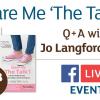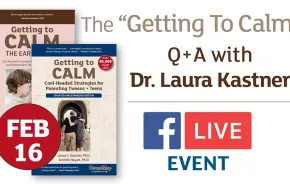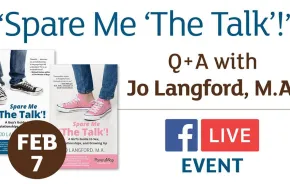
The Rise of Cancel Culture: A Talk for Parents + TeensJoin ParentMap on April 20 at 6:30 p.m. for an important talk by Seattle-based author and therapist Jo Langford, M.A., on how cancel culture affects our kids, and get your essential questions answered during a live audience Q&A. |
“Cancel culture” has made its way into tween and teen peer groups in a major way. Cancel culture refers to a form of social-media-based shaming or boycotting employed to hold someone publicly answerable for actions, beliefs or behavior that is judged to be problematic. But when can cancel culture be a powerful tool for accountability and when does it become harmful and toxic?
In an upcoming ParentEd Talk, Seattle-based therapist Jo Langford, M.A., will break down what families need to know about cancel culture and its impacts, both on the larger culture and on individuals. Langford will share how parents can help their teens navigate the phenomenon, including how to avoid contributing to canceling unnecessarily, healthy ways to address problematic behaviors and what to do (or not do) if your kid gets canceled.
We caught up with Langford to learn more about why it is so important that parents better understand the potential pitfalls of cancel culture.
How do teens think about cancel culture?
Kids have many ways to organize the behaviors they see in others online. By many of them, canceling is seen as almost the flip side of “stanning” someone — with a stan signifying deep love or admiration. Canceling is seen as a way to bring about positive change by labeling something (or someone) as not safe or not okay.
How is cancel culture different from other forms of rejection or ostracism? Does it relate to bullying?
Social media is the primary tool for canceling someone — the distance and virality the screens provide are the driving forces for this kind of social behavior and change.
Canceling looks different from “analog” bullying, because it can be a form of cyberbullying, and therefore can much more widely and quickly spread to a large audience, without available adults to offer intervention or support. Those who are canceled are called out publicly, but not given a proper platform to respond.
The negative effects of being canceled can be greatly damaging to people’s relationships, careers and self-worth.
What are the bigger incidents or issues that define cancel culture for teens?
Canceling is most likely seen around racist, sexist and phobic behaviors — particularly hate behaviors online and sexualized boundary crossings in real life.
Cancel culture among teens must have some good benefits of accountability, but what are some of the dark-side aspects impacting a teen that parents should know about?
Many teens deal with being called out online by themselves, because the embarrassment and isolation can be a barrier to reaching out for help when they most need it.
How do/should school administrators intersect with canceling behaviors by students?
Schools have a responsibility to make reasonably sure that the children in their care are protected from hazards and harm. It can be argued that this does not extend to their personal lives outside of school. However, in the case of students, whether or not the behavior in question happened during the school day or at a school-sanctioned event, if the parties are students at the same school, what steps the school had — or had not — taken to prevent the behavior from happening is [a significant factor].
What are healthier ways of dealing with problematic behaviors?
As with most things, using our words is typically the best way of dealing with a problematic situation, but we live in America, where culturally “distanced” behaviors such as revenge and litigation are historically sanctioned ways to deal. Canceling is the most recent version of this.











